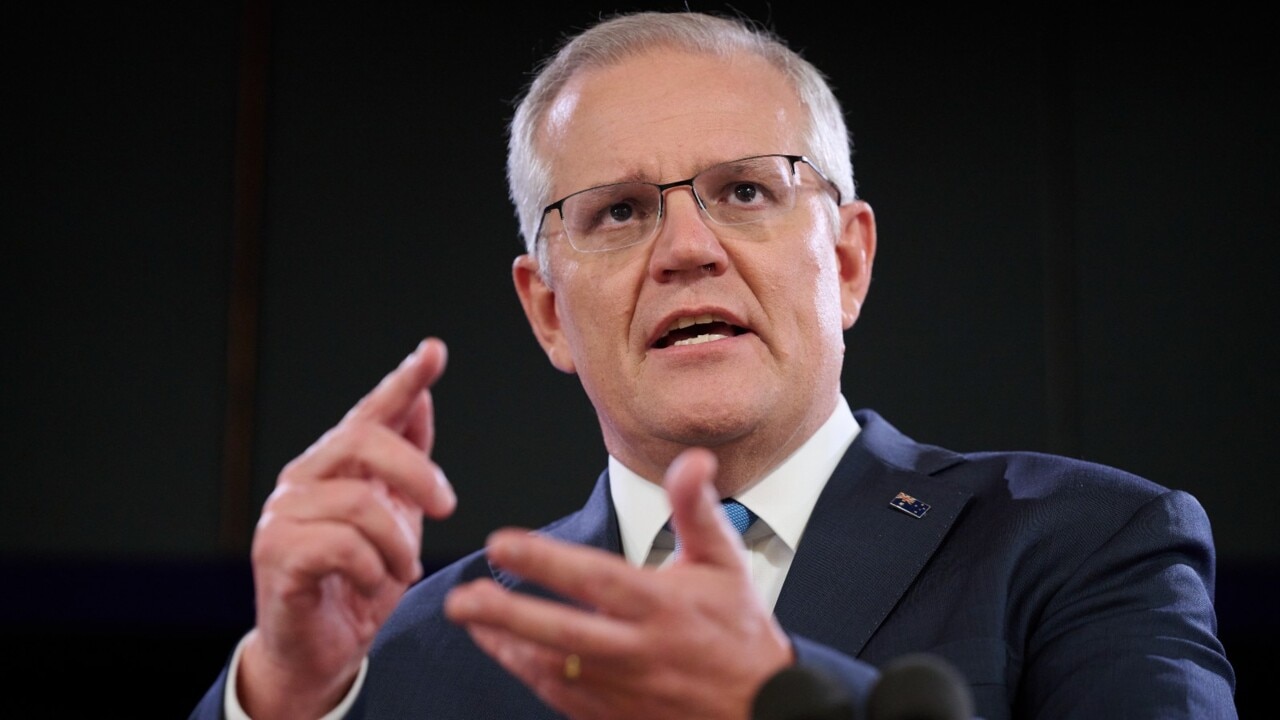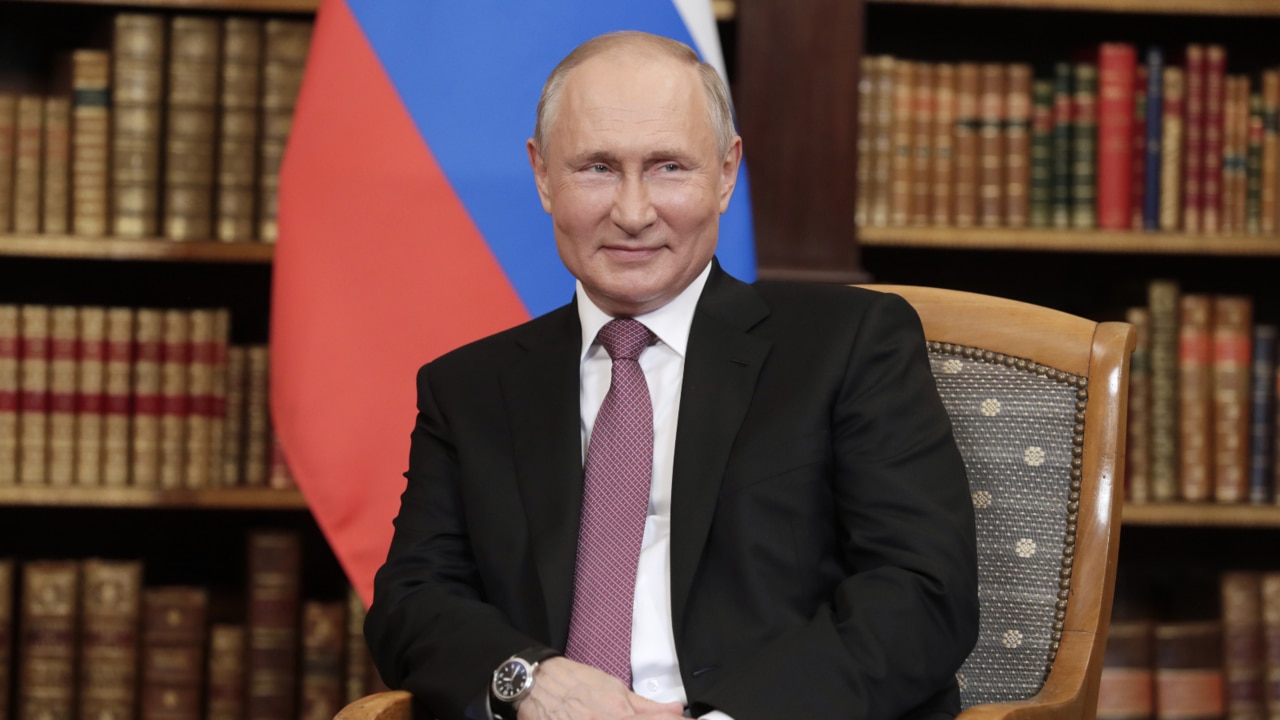War in Ukraine: what it could mean for Australians’ household finances
Adelaide is in the grip of a record petrol price spike, with unleaded hitting 200c/L as the Ukraine crisis intensifies. Other household costs are also set to surge.

Lifestyle
Don't miss out on the headlines from Lifestyle. Followed categories will be added to My News.
Russia’s invasion of Ukraine is on the other side of the world, but its financial impacts will be felt by Australian households.
While Australia is not a major trading partner of Russia, economic sanctions imposed by Western governments and the other destabilising effects of war will flow through to prices, products, and investments, economists say.
The conflict comes amid surging global inflation and pandemic-related supply chain squeezes, and could inflate prices further if Russia is punished with trade bans.
There are several key areas to watch.
FUEL COSTS
Adelaide is in the grip of a record petrol price spiking incident, as unleaded reaches 200c/L.
The number of outlets advertising petrol for 199.9c/L jumped to 10 on Thursday morning as uncertainty built due to the evolving situation in Eastern Europe.
Outlets included various Ampol, Coles Express and OTR stores in Wingfield, Mansfield Park, Hawthorn, Stephney, Unley and Rose Park.
RAA spokesman Mark Borlace said with five outlets advertising for 199.9c/L by noon on Wednesday, an official record could be declared.
“In the past we have had only one or two outlets reaching this peak, not enough to call it an attempt to drag the entire market up,” he said.
“This is now a pattern and so the highest official price spike we have recorded, and up from the last spike price average of 184c/L.
“The average price in Adelaide on Wednesday is 165.7c/L so there are still many sites where you will not have to pay the peak.”
Mr Borlace said the imminent Russian invasion of Ukraine had caused wholesale oil prices to increase sharply.
“The price of crude has been going up on average ten per cent per month for the last two months, when Russia started threatening Ukraine,’’ he said.
“Basically people have been squirrelling oil away in case a war started.
“It was going up anyway because everyone is starting to get on the road again after Covid restrictions eased.”

Mr Borlace said there could be some relief on the way as the US increased crude oil production.
“Once the price of crude oil reaches $70 to $80 a barrel the American shale oil production becomes viable, and the price at the moment is already $100,’’ he said.
Mr Borlace said with the lowest advertised price of 163.4c/L in Adelaide, motorists could fill up for around $20 less per average tank by shopping around on the RAA’s live pricing app.
“That is five cents under wholesale which is the best you will do,’’ he said.
“Given the mixed-business model of petrol stations now, there would be retailers who are selling it under wholesale so they can keep selling the coffees and supermarket items.
“There may be some that are actually making more out of these sale items than fuel at the moment.
“If people are not using the app now and putting pressure back on the system it is defeating the purpose and hard work we have done putting it in place.”
EXPORTS AND IMPORTS
Russia is Australia’s 48th-largest trading partner, according to the federal government, and our key exports to the country include alumina, live animals and wheat.
We mainly import fertilisers, wood manufacturing products and crude petroleum, although imports have been dropping since 2014 when Russia took Crimea from Ukraine.
The more sanctions that are imposed, the greater the chance of Australian exports being required to replace Russian production.
FOOD AND FARMING
Sanctions could stop Russian exports of grain and agricultural products to Europe, while Ukraine’s production could also be disrupted.
BetaShares chief economist David Bassanese said: “Ukraine is a major food producer”.
“That may have impacts for grain prices and indirectly may be of some benefit to farmers,” he said.
But supermarket prices could head higher amid production shortages and the impact of higher fuel costs flowing through to transport.

ELECTRICITY AND GAS
Household electricity costs have been relatively flat in recent years, but could rise if the conflict escalates, although economists say it’s too early to predict.
Mr Bassanese said sanctions could increase demand for non-Russian energy producers such as Australia.
“It could flow through over the next few months, depending on how extensive the hostilities are,” he said.
INVESTMENTS
US stocks have sunk further than they did during the January sell-off, but Aussie shares so far have been resilient and traded in positive territory on Wednesday.
AMP chief economist Shane Oliver said share markets were at high risk of falling further.
“The history of crisis events shows a short-term hit to markets followed by a rebound over three to 12 months,” he said.
“Given the difficulty in timing market reactions to geopolitical developments, the best approach for most investors is to stick to an appropriate long-term investment strategy.”




